




Dear RACE for 2030 Community,
As we approach the end of 2024, we see an increasing awareness of the importance and role of consumer energy resources (CER) in our energy mix. In August, RACE released its report on “CER Unleashed” where we worked with Energy Catalyst to critically examine the almost $1b of investment in CER pilots and trials performed in Australia over the last 5-7 years. This analysis highlights the need for a more coordinated approach to the critical role CER can provide in decarbonising Australia’s electricity sector with consumers at the forefront of actions.
We are encouraged by the recent actions by Commonwealth and state governments toward a more coordinated approach to CER. In particular, we would like to highlight the recently announced Consumer Energy Strategy from the NSW government. RACE is proud to be leading the research to help the NSW government assist households and small businesses benefit from a transition to a renewable energy future.
In September, we released an update to workforce projections to meet AEMO’s Integrated System Plan (ISP). The work performed by UTS highlights the crucial need for our government, industry and education providers to develop informed and responsive polices, plans and programs to rapidly scale the workforce required to meet our electricity sector goals.
Last month, SA Power Networks (SAPN) began recruiting participants for the Energy Master project which we funded jointly with ARENA. Only two weeks later, we saw rooftop PV reaching 112% of state demand in SA highlighting the urgent need for coordinated research of the social, economic and technical barriers, and enablers to facilitate the orchestration of residential loads and supply.
RACE is funding and managing the critical research to understand and scale outcomes from this important trial.
With a growing need for better utilising supply of renewables, in particular rooftop PV, we see the critical role that EVs can play in maximising renewable energy to decarbonise the transport sector. As more vehicles enter the market, there is a clear opportunity to use these mobile batteries for more than transport alone. In the coming months, we will release a report jointly funded by RACE and ARENA exploring the opportunities for bi-directional charging and mapping a path forward for Australia.
Finally, in September, I had the pleasure of presenting to the New Zealand Electrical Engineers Association’s annual conference. I focused on potential areas for collaboration, lessons from Australia and the need for coordinated innovation to drive down emissions and costs in the electricity sector. We look forward to continued cooperation with our cross Tasman partners.

Bill Lilley, CEO



Our flagship “Pathways to Net Zero Precincts” project is spearheading Australia’s transition to sustainable urban environments. Through 10+ real-world case studies, in collaboration with Curtin University and industry leaders, we’re testing innovative strategies to achieve net-zero emissions in urban precincts.
A cornerstone of this project is the development of Envision Tomorrow Australia (ET-Oz), an open-source urban design scenario planning tool tailored for the Australian context. Adapted from a successful US model ET-Oz will empower any precinct to assess development scenarios for financial outcomes against net-zero goals, factoring in green infrastructure, public transport, and quality of public spaces.
ET-Oz has the potential to significantly accelerate Australia’s progress towards net zero urban environments through collaborative planning and modelling. We are seeking an industry partner to work with us on a case study application of the project. Interested in leveraging ET-Oz for your net-zero planning? Contact us!
Empowering the energy home installation workforce for a decarbonised future – A more-than-market relationship!
Electricians, gas-fitters, plumbers and other residential tradespeople will play a vital role in the cost-effective and rapid decarbonisation of the energy system. Multiple research projects looking at trust in the energy space show that installers are trusted above governments, energy utilities and the media. Not only are they trusted, but they also act as a conduit to real decision-making, supplying energy products to customers when they need it. Think of the difference that could be made if installers had the right information and confidence. Imagine them supporting householders with deciding to install a heat pump water heater instead of a like-for-like gas storage system! Or the difference that electricians providing appropriate information on the best times for EV charging could have on network utilisation and costs!
RACE is looking for research and industry partners to support development of research in the space of understanding the perspectives of the current workforce, developing models to support the upskilling and empowerment of these workers, and testing where education and training packages are already in place – to communicate these benefits more widely! Reach out if you are an industry or government partner delivering a program in this space that you would like evaluated, or a research partner with something to offer in this space.

Could a video game help residential customers understand the decarbonisation options available to them? What could a game teach them about how solar systems work, the benefits of insulation, and the kinds of appliances they should buy? Playconomics is an educational computer game developed by UNSW to teach basic theories in economics. Now, we’re adapting it to create PlayEnergy, a powerful tool for consumer energy education. With adjustable modules and layers, PlayEnergy can be tailored to teach consumers about the impacts of their energy use decisions on costs, load profiles etc.
We are in the early stages of development with this project and are seeking industry partners to understand how you might want to use this tool. There is the potential for using PlayEnergy in two ways:
1. It could be used as a consumer education tool by developing the game into a scale suitable for consumers to interact with, and partnering with industry to test the game with their consumers to see if they develop their energy literacy.
2. It could be used to test theoretical assumptions about the kinds of energy decisions people would make, by setting up competing ‘environments’ in the game, with different experimental tests, and then comparing behaviour between different groups. Contact us to learn more about this opportunity!

With so many options and so little time, we need to be able to compare the overall impact of different decarbonisation policy decisions – and that’s where the Energy Policy Simulator steps in! The Energy Policy Simulator is designed to provide on-the-spot projections (within seconds) of what emissions reduction opportunities look like with different policies in place, making it a useful preliminary screening tool and complement to comprehensive optimisation models.
The open-access web-enabled software (e.g. United States Energy Policy Simulator) can be used by policy agencies to provide advice, for political organisations to build the case for reform, and for industry to build support for their initiatives. It has been used to map the world’s largest emitters, including China, India and the US – where it was also used in the development of the Inflation Reduction Act.
The research required to support this translation into the Australian context includes data gathering, policy scenario development, calibration for the Australian market, and system development. This will result in an open source version of the system dynamics simulator to be available for access by the Australian public. We are seeking industry partners to support the research team at RMIT and Monash bringing this vital tool to Australia. Your contribution will help empower decision-makers and accelerate Australia’s transition to a sustainable energy future.

As part of our Smart Sensing and Industry 4.0 Energy Productivity Guide for Business, RACE’s partner IoTAA is developing a practical guide for assessing energy productivity issues. This guide will cover architecture, modelling, IP, data sharing and security, and will showcase industry vertical use cases of successful implementations to assist industry bodies in overcoming current barriers to progressing energy savings.
In parallel, IoTAA and CSIRO are developing a call for proposal for Smart Metering trials (the use of advanced meters to track energy consumption in real-time), aimed at providing research support to organisations implementing Smart Metering and/or Industry 4.0. These trials will complement the Guide by providing practical insights into Smart Metering implementation.
Get in contact to express your interest.


RACE for 2030 is excited to be the research partner for Energy Masters, using specialist energy researchers from UniSA, UNSW and UTS. This project aims to help consumers take control of their energy management, enabling them to use energy smarter, reduce bills, and lower emissions.
If your organisation is committed to improving energy efficiency and use, then help your South Australian customers or community become an Energy Master.
Households selected to join Energy Masters get access to:
• a free home energy management system
• 50 to 90 percent subsidies on energy-smart appliances
• energy plans that reward flexible energy use
• insights and flexibility with a mobile app
In return, households participate in research that will strengthen South Australia’s position in the global energy transition. It is expected to demonstrate a simple, reliable, and cost-effective way for all South Australians to become masters of their energy use.
Learn more at SA Energy Masters.
Energy Masters is an SA Power Networks project supported by the Government of South Australia. The project has also received funding from the Australian Renewable Energy Agency.
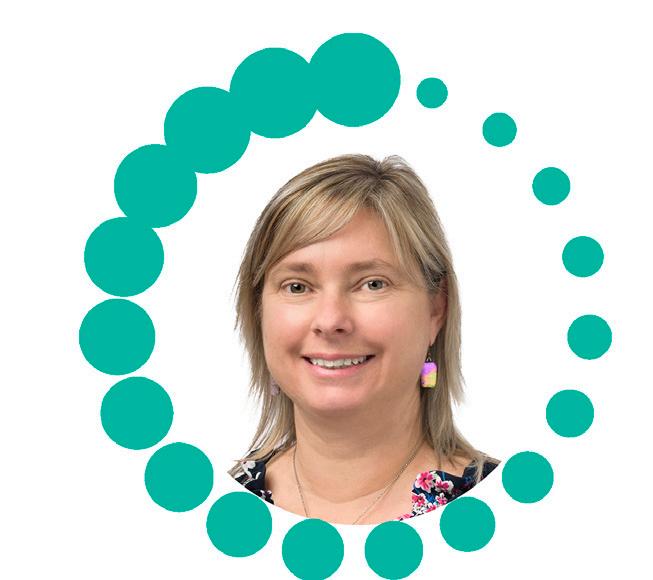
RACE contact:

The RACE team in collaboration with Climate KIC and Advancing Communities Australia are exploring projects to identify and quantify the full value stack available to all stakeholders associated with industrial/commercial area electrification..
This project aims to work with networks (T&D), users (operators and equipment investment management), rooftop owners, equipment vendors, precinct operators, and other interested parties to identify and capture the full value of a coordinated approach to precinct-level energy optimisation. This includes electrification of building systems and transportation, maximising local solar generation, creating load flexibility, leveraging demand response, and optimising network performance.
The project team already has material financial support from one QLD precinct operator and interest from others. RACE is aware that there may be similar opportunities across NSW, Victoria, SA and WA and would like to assist in initiating these DREZ projects.
Join us in shaping the future of energy. Contact Neil Horrocks today to discuss partnership opportunities and explore DREZ projects in your region.

For more information, please contact:
neil.horrocks@racefor2030.com.au

By 2050, EV batteries could make up ~80% of the gross storage capacity in the NEM. RACE recognises the vital importance of unlocking this capacity to aid in the energy transition while benefiting EV owners. RACE for 2030 is a strong supporter of Vehicle-to-Grid (V2G) bidirectional charging technology, previously researched through projects such as Electric Vehicles & the Grid, and My V2X: Informing Strategic EV Integration.
RACE is now building on the recommendations from these projects to identify the critical actions required for mass market V2G in Australia. In partnership with the Australian Renewable Energy Agency (ARENA), RACE is cofunding the development of a national V2G roadmap that will enable at-scale adoption of bi-directional charging in Australia. Technical consultants enX consulting have been appointed to assist in developing the roadmap. The roadmap will identify the potential pathways to achieving commercial adoption of bi-directional charging in Australia and will build consensus with key stakeholders in the industry, who have a significant role to play in unlocking these pathways. It will help to inform the next series of investment and policy decisions by the private and public sectors to commercialise V2G in Australia.
The national V2G roadmap will directly contribute to the Australian Government’s National Consumer Energy Resources Roadmap, which seeks to save the energy system billions of dollars and reward consumers for their role in accelerating the transition.
It is anticipated that the roadmap will be published in early 2025 – stay tuned across both RACE and ARENA socials for announcements once the report is ready.


QUT’s Associate Professor Yateendra Mishra and his team from the School of Electrical Engineering and Robotics are advancing their project, “Understanding Power System Dynamics with High Levels of Grid-forming Inverters.” This research is crucial for ensuring grid stability as more renewable energy sources are integrated. Collaborating with Powerlink, Ausgrid, Curtin University, and ETIK Energy, the project has recently seen Dr. Maysam Abbasi recently join the team to lead modelling development. The project is gaining significant interest as understanding power system dynamics is crucial for integrating renewable energy sources into the grid. RACE will provide ongoing updates as milestones are reached. In the meantime, read a recently published article in Utility Magazine

Australia’s homes faces a significant energy efficiency challenge, with 80% of homes rated two stars or less for energy performance. This results in excessive energy use, high energy bills and homes that are often too cold in winter, too hot in summer, and in some cases, unsafe. The Energy Upgrades for Australian Homes project is working to change this by enabling energy upgrades for 1 million homes across the country.
In our first year, we have been building the foundations for success by collaborating with industry, community, and research partners. We have gained insights into the challenges and opportunities for home energy upgrades by learning about what is working well, what is not, and where opportunities exist to drive change.
At the end of this three-year project, an online platform for home energy upgrades will provide program organisers with the practical tools, resources, and guidelines to accelerate upgrades across Australia.
To test and refine the tools and resources we create, we’re working with organisations delivering upgrade programs to communities. We’ve already begun working with two community partners in Geelong, Victoria, and in the Anangu Pitjantjatjara Yankunytjatjara (APY) Lands, South Australia.

This project aims to develop an Australian-made 3-in-1 heat pump system that provides space heating, cooling, and hot water to homes 24/7 with minimal emissions. It is a 12-month project led by RMIT, in collaboration with ActronAir and supported by C4Net. The project is on track to deliver a functional prototype by early 2025, followed by commercialisation.
The careful engineering of this heat pump system, which includes hot and cold thermal storage alongside a highefficiency heat delivery unit, will ensure that householders can reduce their energy costs, enhance their thermal comfort, and lower their emissions. The aim is to deliver these benefits with lower capital and lifecycle costs compared to conventional products.
Deploying this product across the residential sector will support the grid by reducing overall electrical power requirements and shifting peak demand, thanks to the system’s integrated hot and cold thermal storage features. Homes will be able to maximise their solar PV self-consumption and participate in demand-side management schemes without compromising indoor thermal comfort.
The system design, component sizing, and engineering of heat delivery units are nearing completion. The project is now transitioning towards manufacturing, sourcing components, testing, and building the fully integrated prototype at ActronAir’s world-class testing facilities.
ActronAir said, “We’re excited about this collaborative research project, which aims to develop an Australianmade 3-in-1 heat pump system with integrated thermal storage. This ground-breaking solution has the potential to revolutionise residential energy use, providing space heating/cooling and hot water from a single, highly efficient unit.”
While certain aspects of the system are confidential, a final report on the project will be available on the RACE website in early 2025.

This project will investigate commercial radio as a medium to accelerate EV adoption and the transition to net zero in Australia. The aim of this project is to identify and analyse commercial radio’s role in Australia’s response to climate change and its net zero targets. Working with content directors, producers and presenters across states and regional areas, content will be developed that resonates with commercial radio audiences and people who are vulnerable to misinformation, resistant to the renewables roll out and a shift to EVs. The efficacy and impact of the content will be evaluated through a rigorous research program using content analysis, surveys, focus groups and interviews with audience members, producers and presenters.
The project has the potential to support EV and the energy transition by increasing public and political awareness of the benefits and impacts of the transition. It will fill a major gap in Australian climate communications research through its focus on commercial radio and online audio as a tool for engaging hard to reach/hard to influence audiences and ensuring local support for large-scale climate solutions. The project will be the first of its kind and will create an evidence base to inform further actions and research in Australia and internationally.

Monash University together with RedGridGPT recently completed their project Ask The Energy System which delivered an advanced prototype of a digital twin that uses machine learning, Generative AI and a large language model to make complex network issues more accessible to stakeholders, customers and shareholders.
On Wednesday the 25th September, we hosted a webinar on the prototype and have began to explore a proposal to build out a detailed, open-source version of the prototype for network operators. Watch the recording.


neil.horrocks@racefor2030.com.au
The final report for the 24/7 TRUZERO project, examining hourly time matching of renewables generation and consumption to achieve 24/7 Carbon Free Energy, is now available. This comprehensive report serves as a valuable resource alongside the final workshop held on Wednesday, June 19th. The project team are currently preparing two journal papers, which will be accessible on the RACE website once published.
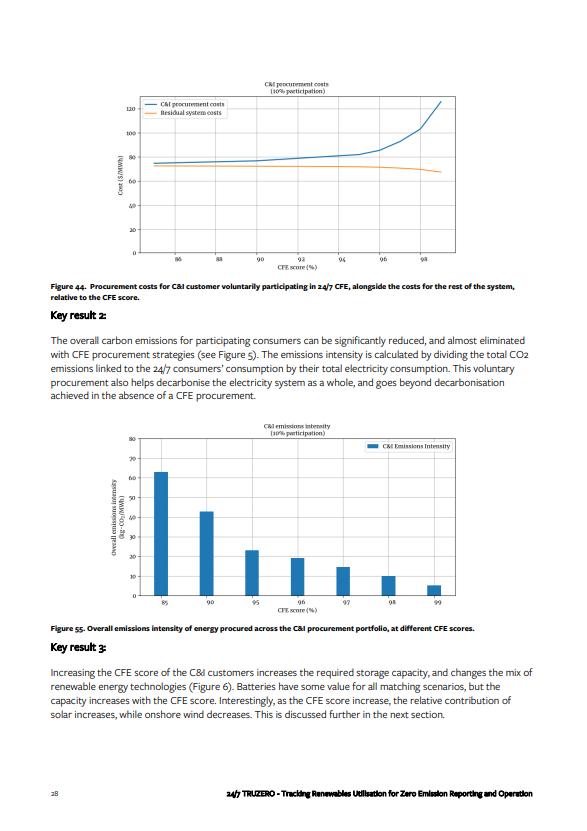

The Energy Trends Visualisation project, a collaboration between UNSW and UTS researchers to develop innovative tools for visualising rooftop solar PV, generator and regional curtailment, minimum demand, and the impact of electric vehicles on the NEM, was recently completed. The final report and tools can be accessed via our website


This comprehensive report from RACE, with support from Energy Catalyst, analysed over 180 CER/DER studies, trials, and demonstration projects conducted in Australia over the last 7 years to gain a deeper understanding of what is being done, what we have learnt, and what is required.
This study for RACE for 2030 maps Australia’s extensive CER/DER-related research, highlighting the urgent need for a nationally coordinated next major phase of applied research and action. Through almost 11,000 evaluation points, the analysis identified key strategic and topical gaps that must be systemically addressed to unleash the full value of millions of consumer energy resources.
The report concluded that, while much has been learned in the first generation of research, the necessary focus has been on reducing the negative grid impacts of consumer resources. It identifies many of the key topics that must now be addressed in the next major phase of applied research for consumer energy resources to become an integral and valuable part of Australia’s future-ready power systems.
All relevant resources, including the webinar recording can be found on the event page.


Electricity sector jobs are forecast to double by 2029, an increase of 33,000 in just 5 years in the most likely scenario of the 2024 Integrated System Plan (ISP).
The majority of these new jobs will be in renewable energy, with wind, solar, and battery storage leading the charge. The
report highlights the growing importance of operations and maintenance roles, which are expected to account for 65% of the electricity sector workforce by 2033.
The rapid expansion of the renewable energy sector will see a significant strain on the labour market. The report makes several recommendations to address these challenges and calls on the federal government, AEMO, and other stakeholders to take immediate steps to address the skills gap and unlock emissions reduction opportunities. By investing in training, streamlining the development process, and promoting diversity in the energy sector, Australia can build a skilled workforce that will power its clean energy future.
Read the reports and view the webinar here



We recently welcomed Sari Octaviani, the new PhD Program Coordinator who works for Monash University, Indonesia. While Sari was completing her Australia Awards Indonesia (AAI) program in Sydney, she took the chance to catch up with our Sydney-based PhD students. Over dinner, she and the students built connections and shared insights to prepare her for the launch of our Industry PhD program in Indonesia.
It was exciting to have Sari attend in-person and have the opportunity to share her thoughts, allowing us to build collaborative foundations as this program moves forward.
RACE has seen continued interest in our top-up scholarship model. This is an exciting opportunity for current industry PhD students studying with a RACE research partner institution and doing work that relates to RACE’s research themes to join our cohort.
Note: Top-up scholarships are open to industry partners outside of RACE too.
We have been progressing our students through some training of late. Rubaiath and Zeehan completed the second cohort of Econome’s Climate Stream in July. They worked on a real industry problem to develop industry-ready skills, complimenting the lessons from their PhD studies. Meanwhile, a second round of students will undertake Masterclass training with The Conversation to develop the story-telling skills required to disseminate their research for our industry audiences. This training will take place in October and continues the efforts RACE makes to ensure our students are ready for the next stage of their careers.

We’re pleased to share that Bowen Zhang, one of our PhD students, recently published a research paper on carbon intensity forecasting in the journal Sustainability (Impact Factor: 3.3, H5-index: 223).
This is a fantastic achievement for Bowen, getting published in a reputable journal like Sustainability is a significant milestone in any researcher’s career, especially for a PhD student. It demonstrates the quality and impact of Bowen’s research, and it’s a testament to his hard work, dedication, and intellectual ability. We are incredibly proud to support our students in their research endeavors, and we celebrate Bowen’s success.
Read the paper here.

Our PhD student, Ayesha Kaleem, has published a study in the journal Sustainable Energy Technologies and Assessments (Impact Factor: 7.1). Under the guidance of Curtin University’s Prof. Sumedha Rajakaruna and Associate Prof. Atiq Zaman, her article, titled “Hydrogen at home: The current and future landscape of green hydrogen in residential settings,” explores the exciting role that green hydrogen could play as part of a residential energy solution.
This comprehensive study provides an overview of the current state of green hydrogen in residential settings and identifies key knowledge gaps, paving the way for future research. Ayesha’s work delves into the viability of green hydrogen and its potential to revolutionise the energy transition.
Congratulations to Ayesha on this remarkable achievement! We’re excited to follow her future contributions to the field. Read the full article here.






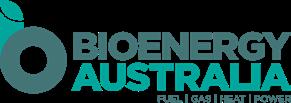




















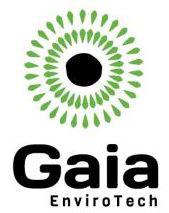










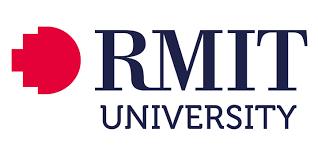




























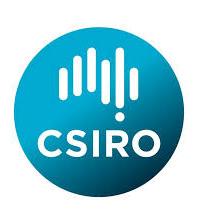



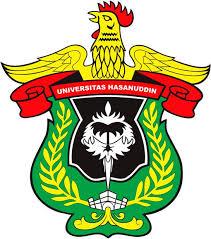




















We are thrilled to welcome our newest partners to the RACE for 2030 family. Their expertise and passion for renewable energy will complement our ongoing efforts, and we look forward to collaborating on groundbreaking projects that will help us achieve a decarbonised/sustainable future.

Making world-class products that provide comfort and convenience – ActronAir is a distinguished Australian manufacturer of efficient, reliable, and innovative air conditioning products and controls. Starting from assembling air conditioning units in his garage in 1984, Garry Mundy laid the foundation for what would become a state-of-the-art manufacturing legacy. Today, the Mundy family continues to guide ActronAir through its 40-year journey of relentless product development, rigorous testing, and continuous innovation.
Their Marsden Park HQ in Western Sydney is home to one the largest dedicated HVAC R&D test facilities in the southern Hemisphere, where their in-house R&D team use it to design products that are technology leaders around the world. ActronAir use in-house manufacturing facilities to build a large number of domestic, commercial and control products, and they are proud to employ over 300 Aussies around the country.
ActronAir offers a cutting-edge range of products with features like vertical discharge, designed to boost efficiency and performance, specifically tailored to the unique demands of the Australian climate. With smart controls, compatible smart devices, and a range of comfort solutions, ActronAir has established itself as a reliable option for the challenging Australian conditions.

CitiPower and Powercor are Victorian based electricity distribution businesses who are part of the Victoria Power Networks group of companies. CitiPower and Powercor move electricity to and from more than 1.2 million residential households and commercial customers across Melbourne’s CBD, inner and western suburbs as well as across central and western Victoria.
Their vast network is the backbone of Victoria’s clean energy revolution. They’re pioneering solutions like community batteries and smart EV charging, ensuring a smooth transition to renewables. With a dedicated team operating from 14 depots and a state-of-the-art customer contact centre, they guarantee Victorians reliable, safe, and affordable electricity, today and into the future.

Red Energy is owned by one of Australia’s largest renewable energy generators, Snowy Hydro with all their profits staying in Australia.
They provide a trusted service, and their award-winning customer service team is based in Australia. With the expansion of the Snowy Scheme through the Snowy 2.0 project, Snowy will play a key role in the transition to a future with 100% renewable energy.
Red Energy is the largest energy retailer in Australia to have their business operations are certified carbon neutral by Climate Active, with their offices are powered by 100% GreenPower accredited electricity.

United Energy distributes electricity to around 676,000 customers – or more than 1.45 million Victorians – across Melbourne’s south eastern suburbs and the Mornington Peninsula. Electricity is distributed in the region via a network comprising over 13,300 kilometres of wires supported by more than 204,000 poles and associated infrastructure.
The network supports 3,100 commercial and industrial business, 53,000 small businesses, 27 per cent of the state’s manufacturing activity and 21 per cent of Victoria’s GDP.



Some of the key highlights:

In September, our CEO, Bill Lilley, delivered an inspiring keynote about the crucial role of CRCs in the energy transition. He shared insights on Australia’s progress, the technical hurdles we face, and the path forward.
» Trust is paramount: A striking 66% of Australians believe the government doesn’t fully grasp emerging technologies. We need to bridge this gap to accelerate change.
» Frameworks drive systemic change: Bill emphasised the importance of impact and innovation framing for meaningful progress.
» “Consumer Energy Unleashed” reveals priority gaps: Our report examined CER/DER projects in Australia, highlighting areas needing urgent attention.
» Scenarios for Future Living explores possibilities: Our latest project delves into current and future households, policies, and consumer opportunities in the energy landscape.


Here are some of the takeaways from our team:
» Other countries have had decades of experience with biomethane, highlighting the need for targeted support to accelerate biogas development in Australia to provide parity with current support for hydrogen.
» Fair competition is key as we shift from historically subsidised fossil gas to renewables.
» New biomethane market entrants need a smoother path – easier approvals, grid connections, and funding access.
» There is a need for more support and faster response times from electricity network providers.
These conversations have sparked project ideas for RACE for 2030, and we’re already following up on some of them.
It’s clear that there’s a lot of momentum for change in the energy sector. We’re excited to be part of this transformation and will continue to share our learnings along the way.
We recently held a webinar focused on revolutionising home energy efficiency in Australia, highlighting the unique opportunity for our country to become a global leader. While Europe has paved the way with mandatory disclosure, we can learn from their challenges and leverage groundbreaking technology to create a superior system.
The insightful webinar delved into the EU/UK experience, exploring the successes and hurdles Europe has faced with mandatory energy efficiency ratings. Participants discovered cutting-edge solutions and learned about breakthrough technologies that enable accurate measurement of home energy performance. They also witnessed how the UK is integrating these technologies into its building regulations.
The webinar aimed to help shape Australia’s future by understanding how we can build a streamlined, effective system from day one.
Couldn’t attend? Click the image to watch the recording.



The RACE for 2030 team was out in full force at the All Energy Conference last month, connecting with industry leaders and exploring the future of energy.
Our very own Oliver Hill, RACE for EVs Program Leader, took the stage to discuss the exciting shift to Electric Vehicles (EVs) in a panel session called: ‘The next frontier: Vehicles-to-grid’. Oliver shared his expertise on the transformative potential of Vehicle-to-Grid (V2G) technology, highlighting how it can create a more flexible and resilient energy system.
In addition, the EUAH project team from ClimateKIC discussed “Home energy upgrades: How to upgrade 1 million + Australian homes”.
The insights we obtained will be invaluable for our upcoming research and projects, including the highly anticipated RACE for EVs roadmap. Stay tuned for its release.

It’s been a busy few weeks for Oliver Hill, our RACE for EVs Program Leader. Following his presentation at the All Energy Conference, Oliver headed to MobilityLive to share his expertise. He participated in a panel discussion titled “Where are we at with V2G”, diving deep into the current state of vehicle-to-grid technology in Australia alongside industry representatives.
In addition, he also moderated an engaging session on “Accelerating public uptake of electric vehicles through innovation and infrastructure.” Oliver’s contributions to these events highlight RACE for 2030’s commitment to driving the EV revolution forward.

Australia is on the cusp of a nationwide renovation wave, with houses, apartments, and commercial buildings embracing energy efficiency and electrification. RACE for 2030 aims to accelerate this movement toward decarbonising the built environment.
To drive this transformation, we are partnering with the Energy Efficiency Council on their Buildings Energy Performance Summit on 19 November in Melbourne. This crucial one-day event will convene experts from industry, policy, and research to address the critical challenges and opportunities in transforming Australia’s building stock.
The Buildings Energy Performance Summit directly supports our RACE for Homes research goals and is vital to our Energy Upgrades for Australian Homes and Apartments projects.
The Summit will explore the issues around:
• Fast-tracking 2035 commitments
• Workforce development
• Policy as a catalyst
• Building trust and confidence
By attending, industry professionals can gain valuable insights into best practices, policymakers can contribute to shaping effective regulations, and researchers can share their latest findings. These insights and collaborations will directly support the goals of the summit and contribute to a more sustainable future for Australia.
Don’t miss this opportunity to be a part of the solution, register now and gain valuable knowledge, network with industry leaders, and contribute to a more sustainable Australia.
Take advantage of a 15% discount on registrations with the code RACE15.
Learn more and register.
Monash University will host an “AIMday” workshop focusing on Maths, AI and Energy in Industry. AIMday aims to foster collaboration between academia and industry, providing a forum to exchange knowledge and ideas to tackle real-world challenges.
As an industry focused cooperative research centre, RACE for 2030 CRC is supporting this initiative to drive industry-led projects. RACE for 2030 can co-design and co-fund projects that focus on reducing energy bills and greenhouse gas emissions. Project types could include:
• industry internships
• proof of concepts
• or scale-ups.
Agenda
Two preliminary meetings with industry representatives to define problem sets for the event and select an academic working group to interact with Industry partners.
One-day, in-person event on November 14th with facilitated discussions, each focused on a specific company question. Facilitated 1-hour ideation discussions, each centred on a company’s question, curated in advance within the limits of the specific topic.
Benefits
Monash University’s strengths include pure mathematics, applied mathematics, statistics, probability, numerical analysis, image analysis, machine learning, AI, data analysis, optimisation, simulation and modeling, software systems, cyber security and more.


Contact
Andrea Collevecchio: andrea.collevecchio@monash.edu
Markus Wagner: markus.wagner@monash.edu




We are gold sponsors of the Australian PV Institute’s Asia-Pacific Solar Research Conference 2024. Taking place on
Accelerating the energy transition requires collaboration from various stakeholders. As a collaborative research centre, we bring together people who drive change. We believe this conference is a great opportunity for researchers and industry professionals to connect and discuss the latest updates, challenges and goals related to:
• Photovoltaic devices
• Renewable energy deployment and integration
• Solar buildings and solar heating and cooling
• Concentrating solar thermal and process heat and chemistry
If you are a researcher passionate about a sustainable future, we look forward to seeing you on the 3rd to 5th of December.
Register today

Thursday, 28 November 2024 12pm-5pm (AEDT)
Save the date for the first of a series of forums as part of the Pathways to Net Zero Precincts project. Focused on certification, the online forum is an opportunity to gain insights into the latest industry developments and research in certification practices for net zero precincts. Register here.

